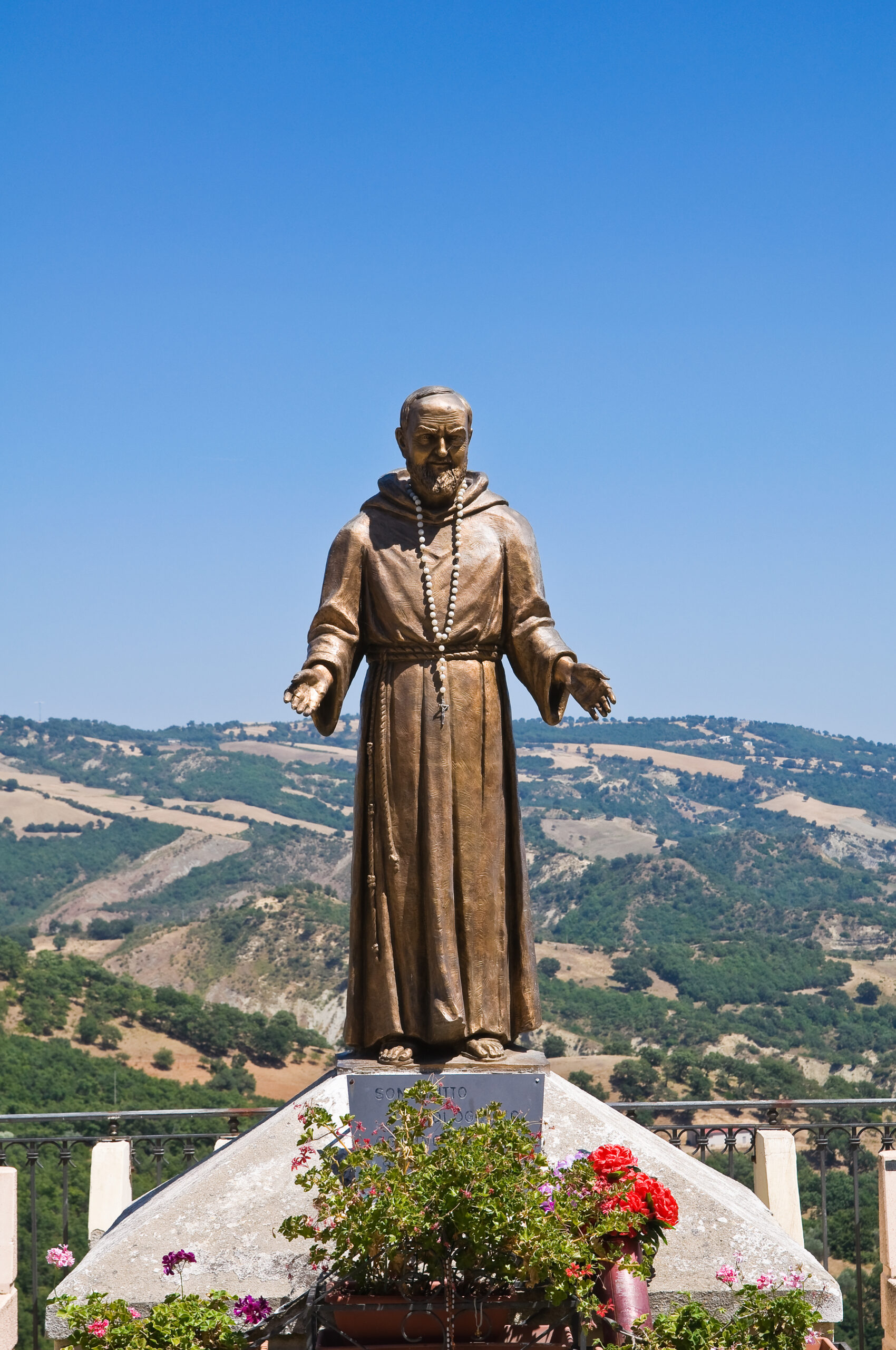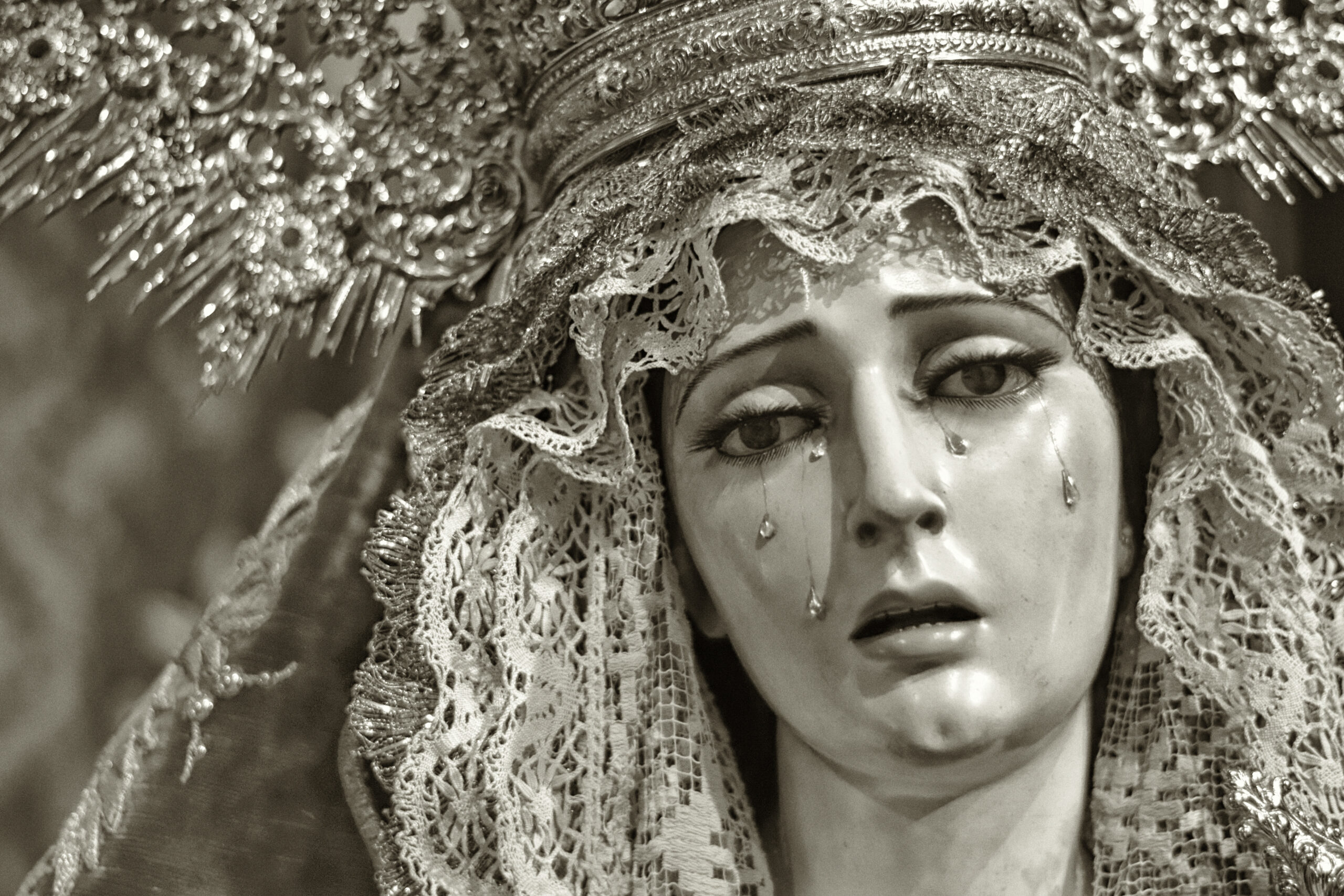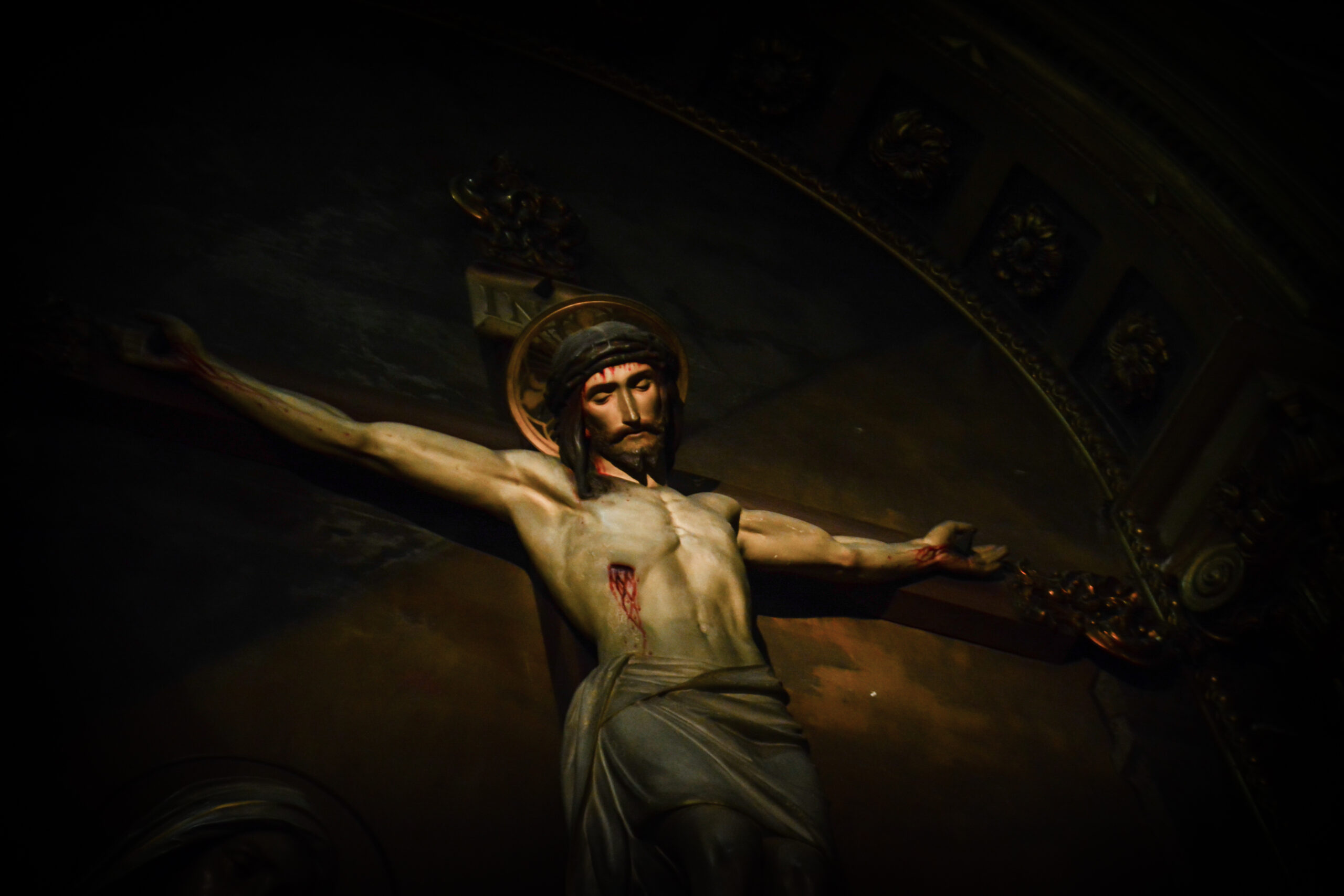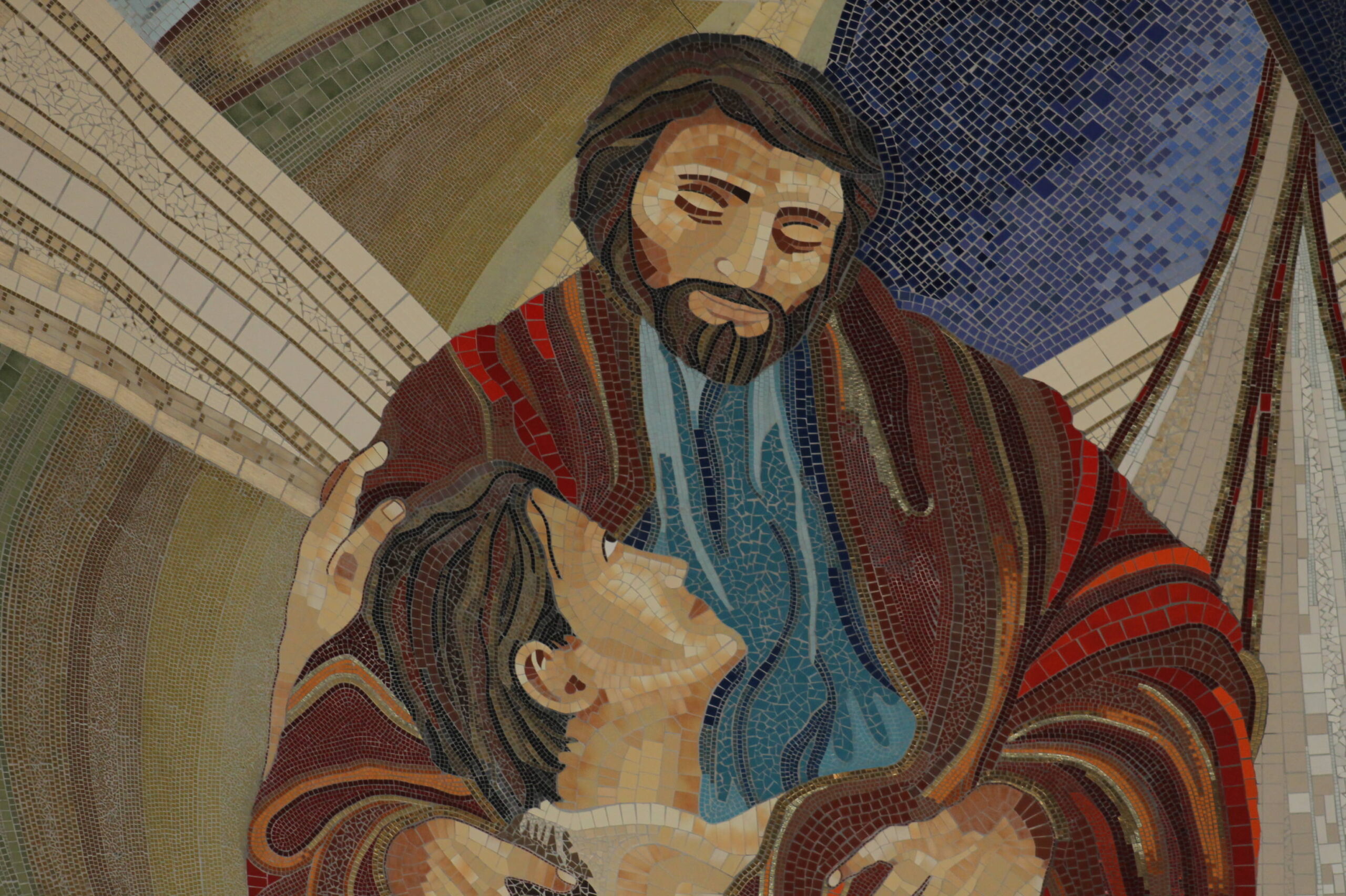“Herod the tetrarch heard about all that was happening,
and he was greatly perplexed…
…And he kept trying to see him.”
This line always makes me chuckle. I understand there was no possibility of connecting with Jesus on Zoom in first century Palestine. Herod couldn’t jump in the car and drive over to an evening seminar. Or follow Jesus on Facebook or Twitter. But, really, it couldn’t have been that hard for Herod to catch up with Jesus to see him.
If, that is, the king really wanted to be seen by Jesus.
Hearing others talk about Jesus. Thinking about him. Reading about the spiritual life. Attending a Bible study or book club. All these things are wonderful and can be important aspects of one’s spiritual journey. They are ways in which Jesus draws us closer to him, and begins to unify our flighty and fidgety senses and distracted thoughts around his gaze where we bask in a love we could never imagine.
Perhaps Herod was hoping to meet Jesus in order to prop up his own power and protect his own authority. He wasn’t really hoping to encounter Jesus in the way Zacchaeus did, or the Magdalene, or Peter, or the lepers. So maybe he didn’t try that hard. These others were men and women who had the desire and the capacity to enter into a sustained relationship with Jesus that was prolonged and deepened through time, that changed their lives, that taught them that indeed life comes and goes in the blink of an eye, as the Teacher and Ecclesiastes writes. The First Reading helps us reflect on life’s repetitiveness, its elusiveness, the shortness of our days on earth, the way in which things slip through our fingers and in the light of eternity are but a whisper in the wind. And thus to treasure the gift of knowing the Lord and being known by him.
These readings rouse my sleepy and distracted heart. I don’t want to be chasing vanities so that like Herod I miss out on the most important relationship that will be mine now and for all eternity. I want to see and be seen by the Lord.
In a world of enticing and exciting options for diversion and pleasure and power, our hearts have to be capable of true attention and concentration if we are not to get caught up in just trying to see Jesus. Simone Weil, the Jewish French philosopher saw this oneness of vision, the ability to keep our attention on one single task in the moment, as a spiritual practice. This practice gradually opens our deeper consciousness so that we learn to meet the gaze of Christ and live from his presence within. Here are four ways to unify the sometimes somewhat scattered way in which we pursue trying to see the Lord:
- Find 20 minutes each day for meditation. Read the Bible or a favorite spiritual book to lead you closer to the Lord.
- Practice doing one thing at a time. Put all your focus on what you are doing, staying in the present moment at least a couple times a day.
- Find some time each week to unplug from social media and turn off your phone.
- Ask Jesus what he’d like from you at this time in your life. Tell him that you want to see him.
 Kathryn James Hermes, FSP, is the author of the newly released title: Reclaim Regret: How God Heals Life’s Disappointments, by Pauline Books and Media. An author and spiritual mentor, she offers spiritual accompaniment for the contemporary Christian’s journey towards spiritual growth and inner healing. She is the director of My Sisters, where people can find spiritual accompaniment from the Daughters of St. Paul on their journey. Website: www.touchingthesunrise.com Public Facebook Group: https://www.facebook.com/groups/srkathrynhermes/ For monthly spiritual journaling guides, weekly podcasts and over 50 conferences and retreat programs join my Patreon community: https://www.patreon.com/srkathryn.
Kathryn James Hermes, FSP, is the author of the newly released title: Reclaim Regret: How God Heals Life’s Disappointments, by Pauline Books and Media. An author and spiritual mentor, she offers spiritual accompaniment for the contemporary Christian’s journey towards spiritual growth and inner healing. She is the director of My Sisters, where people can find spiritual accompaniment from the Daughters of St. Paul on their journey. Website: www.touchingthesunrise.com Public Facebook Group: https://www.facebook.com/groups/srkathrynhermes/ For monthly spiritual journaling guides, weekly podcasts and over 50 conferences and retreat programs join my Patreon community: https://www.patreon.com/srkathryn.


 Sheryl O’Connor delights in being the number 1 cheerleader and supporter for her husband, Tom who is a candidate for the Permanent Diaconate in the Diocese of Kalamazoo. They are so grateful for the opportunity to grow together in this process whether it is studying for classes, deepening their prayer life or discovering new ways to serve together. Sheryl’s day job is serving her community as the principal for St. Therese Catholic School in Wayland, Michigan. Since every time she thinks she gets life all figured out, she realizes just how far she has to go, St. Rita of Cascia is her go-to Saint for intercession and help. Home includes Brea, a Bernese Mountain dog and Carlyn, a very, very goofy Golden Retriever.
Sheryl O’Connor delights in being the number 1 cheerleader and supporter for her husband, Tom who is a candidate for the Permanent Diaconate in the Diocese of Kalamazoo. They are so grateful for the opportunity to grow together in this process whether it is studying for classes, deepening their prayer life or discovering new ways to serve together. Sheryl’s day job is serving her community as the principal for St. Therese Catholic School in Wayland, Michigan. Since every time she thinks she gets life all figured out, she realizes just how far she has to go, St. Rita of Cascia is her go-to Saint for intercession and help. Home includes Brea, a Bernese Mountain dog and Carlyn, a very, very goofy Golden Retriever.
 Erin is a Cleveland native and graduate of Franciscan University of Steubenville. Following graduation, she began volunteering in youth ministry at her home parish of Holy Family Church. Her first “big girl” job was in collegiate sports information where, after a busy two years in the profession on top of serving the youth, she took a leap of faith and followed the Lord’s call to full-time youth ministry at St. Peter Church. She still uses her communication arts degree as a freelance writer and statistician, though. You can catch her on old episodes of the Clarence & Peter Podcast on YouTube as well as follow her on Twitter @erinmadden2016.
Erin is a Cleveland native and graduate of Franciscan University of Steubenville. Following graduation, she began volunteering in youth ministry at her home parish of Holy Family Church. Her first “big girl” job was in collegiate sports information where, after a busy two years in the profession on top of serving the youth, she took a leap of faith and followed the Lord’s call to full-time youth ministry at St. Peter Church. She still uses her communication arts degree as a freelance writer and statistician, though. You can catch her on old episodes of the Clarence & Peter Podcast on YouTube as well as follow her on Twitter @erinmadden2016.
 Tami Urcia grew up in Western Michigan, a middle child in a large Catholic family. She spent early young adulthood as a missionary in Mexico, studying theology and philosophy, then worked and traveled extensively before finishing her Bachelor’s Degree in Western Kentucky. She loves tackling home improvement projects, finding fun ways to keep her four boys occupied, quiet conversation with the hubby and finding unique ways to love. She works at Diocesan, is a guest blogger on
Tami Urcia grew up in Western Michigan, a middle child in a large Catholic family. She spent early young adulthood as a missionary in Mexico, studying theology and philosophy, then worked and traveled extensively before finishing her Bachelor’s Degree in Western Kentucky. She loves tackling home improvement projects, finding fun ways to keep her four boys occupied, quiet conversation with the hubby and finding unique ways to love. She works at Diocesan, is a guest blogger on 
 Patrick produces YouTube content for young Catholics on
Patrick produces YouTube content for young Catholics on 
 Emily Jaminet is a Catholic author, speaker, radio personality, wife, and mother of seven children. She earned a bachelor’s degree in mental health and human services from the Franciscan University of Steubenville. She is the co-founder of
Emily Jaminet is a Catholic author, speaker, radio personality, wife, and mother of seven children. She earned a bachelor’s degree in mental health and human services from the Franciscan University of Steubenville. She is the co-founder of 
 Shannon Whitmore currently lives in northwestern Virginia with her husband, Andrew, and their two children, John and Felicity. When she is not caring for her children, Shannon enjoys writing for her blog, Love in the Little Things, reading fiction, and freelance writing. She has experience serving in the areas of youth ministry, religious education, sacramental preparation, and marriage enrichment.
Shannon Whitmore currently lives in northwestern Virginia with her husband, Andrew, and their two children, John and Felicity. When she is not caring for her children, Shannon enjoys writing for her blog, Love in the Little Things, reading fiction, and freelance writing. She has experience serving in the areas of youth ministry, religious education, sacramental preparation, and marriage enrichment.
 Kathryn Mulderink, MA, is married to Robert, Station Manager for Holy Family Radio. Together they have seven children (including newly ordained Father Rob and seminarian Luke ;-), and two grandchildren. She is a Secular Discalced Carmelite and has published five books and many articles. Over the last 25 years, she has worked as a teacher, headmistress, catechist, Pastoral Associate, and DRE. Currently, she serves the Church as a writer and voice talent for Catholic Radio, by publishing and speaking, and by collaborating with the diocesan Office of Catechesis, various parishes, and other ministries to lead others to encounter Christ and engage their faith. Her website is
Kathryn Mulderink, MA, is married to Robert, Station Manager for Holy Family Radio. Together they have seven children (including newly ordained Father Rob and seminarian Luke ;-), and two grandchildren. She is a Secular Discalced Carmelite and has published five books and many articles. Over the last 25 years, she has worked as a teacher, headmistress, catechist, Pastoral Associate, and DRE. Currently, she serves the Church as a writer and voice talent for Catholic Radio, by publishing and speaking, and by collaborating with the diocesan Office of Catechesis, various parishes, and other ministries to lead others to encounter Christ and engage their faith. Her website is 
 Jeannette de Beauvoir is a writer and editor with the digital department of Pauline Books & Media, working on projects as disparate as newsletters, book clubs, ebooks, and retreats that support the apostolate of the Daughters of St. Paul at
Jeannette de Beauvoir is a writer and editor with the digital department of Pauline Books & Media, working on projects as disparate as newsletters, book clubs, ebooks, and retreats that support the apostolate of the Daughters of St. Paul at 
 Sarah Rose hails from Long Island and graduated from Franciscan University in 2016 with a Bachelor’s in Theology & Catechetics. She is happily married to her college sweetheart John Paul. They welcomed their first child, Judah Zion, in 2019. She is passionate about her big V-vocation: motherhood, and her little v-vocation: bringing people to encounter Christ through the true, the good, and the beautiful. She loves fictional novels, true crime podcasts/documentaries, the saints (especially Blessed Chiara Luce Badano), & sharing conversation over a good cup of coffee. She is currently the Coordinator of Young Adult Ministry at St. Cecilia Church in Oakley, Cincinnati. You can find out more about her ministry here:
Sarah Rose hails from Long Island and graduated from Franciscan University in 2016 with a Bachelor’s in Theology & Catechetics. She is happily married to her college sweetheart John Paul. They welcomed their first child, Judah Zion, in 2019. She is passionate about her big V-vocation: motherhood, and her little v-vocation: bringing people to encounter Christ through the true, the good, and the beautiful. She loves fictional novels, true crime podcasts/documentaries, the saints (especially Blessed Chiara Luce Badano), & sharing conversation over a good cup of coffee. She is currently the Coordinator of Young Adult Ministry at St. Cecilia Church in Oakley, Cincinnati. You can find out more about her ministry here: 

 J.M. Pallas has had a lifelong love of Scriptures. When she is not busy with her vocation as a wife and mother to her “1 Samuel 1” son, or her vocation as a public health educator, you may find her at her parish women’s bible study, affectionately known as “The Bible Chicks.”
J.M. Pallas has had a lifelong love of Scriptures. When she is not busy with her vocation as a wife and mother to her “1 Samuel 1” son, or her vocation as a public health educator, you may find her at her parish women’s bible study, affectionately known as “The Bible Chicks.”